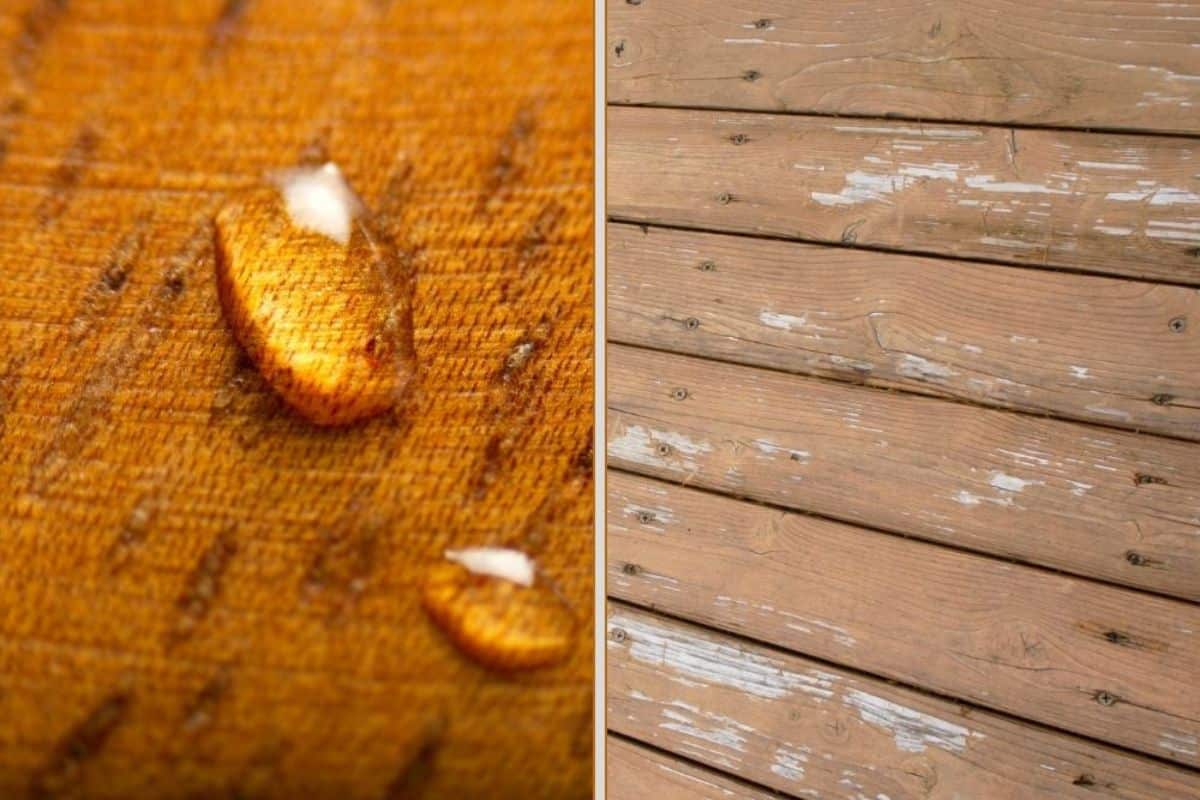A well-constructed deck can be the crown jewel of any outdoor space, providing a place for relaxation, entertainment, and connection with nature. When it comes to building or renovating a deck, one of the fundamental decisions is the choice of materials. Waterproof decking has become an alternative to traditional wood decks in recent years. This article explores the critical differences between waterproof decking and standard wood decks, helping you make an informed decision for your outdoor oasis.
The Aesthetic Appeal
Traditional Wood Decks
Traditional wood decks have an undeniable charm and natural beauty that stems from the warmth and character of the wood. Whether you choose cedar, redwood, pressure-treated pine, or exotic hardwoods, wood decks offer a classic, timeless look that can complement any architectural style. Over time, wood decks develop a patina that enhances their appeal, making them a popular choice for those who appreciate the rustic and authentic aesthetic.
Waterproof Decking
Waterproof decking, often made of composite materials, vinyl, or PVC, offers a more uniform and modern appearance. These materials can mimic the look of wood but lack genuine wood’s natural texture and grain. However, waterproof decking does not require the periodic staining or sealing that wood decks do, which can help maintain their initial aesthetic appeal over the years.
Maintenance Requirements
Traditional Wood Decks
Wood decks require regular maintenance to preserve their beauty and structural integrity. This maintenance includes staining or sealing every few years to protect the wood from moisture, UV rays, and pests. Additionally, you may need to sand and refinish the deck surface to remove splinters, cracks, or discoloration. Neglecting maintenance can lead to rot, warping, and decreased the deck’s lifespan.
Waterproof Decking
One of the primary advantages of waterproof decking is its low maintenance requirements. These materials are engineered to resist moisture, fading, and insects. While occasional cleaning with soap and water is recommended to keep them looking their best, waterproof decks do not need the extensive maintenance that wood decks demand. This can save you time, money, and effort in the long run.
Durability
Traditional Wood Decks
The durability of traditional wood decks largely depends on the type of wood used and the quality of construction. Hardwood species like ipe and teak tend to be more resilient, while softwoods require more maintenance and may have a shorter lifespan. Even with proper care, wood decks are susceptible to moisture damage, warping, and insect infestations.
Waterproof Decking
Waterproof decking materials are engineered to be highly durable and resistant to the elements. They are not prone to rot, decay, or splintering, which makes them a compelling choice for areas with heavy rainfall or high humidity. These decks also resist fading, staining, and scratches, ensuring they look suitable for years. Many waterproof decking products come with extended warranties, providing peace of mind regarding their durability.
Installation Complexity
Traditional Wood Decks
Building a wood deck requires a fair amount of skill and expertise. It involves framing, decking installation, and finishing, which can be a DIY project for some but may require hiring a professional for others. Wood decks are often attached to a house, so they must be adequately flashed and waterproofed to prevent water infiltration.
Waterproof Decking
Waterproof decking systems are designed to simplify the installation process. Many of these systems come with interlocking components, making it easier for professionals and DIY enthusiasts to create a watertight deck surface. While some level of expertise is still necessary, waterproof decking often reduces the complexity of installation when compared to traditional wood decks.
Environmental Considerations
Traditional Wood Decks
The environmental impact of traditional wood decks can vary depending on the type of wood chosen and its sourcing. Some wood species are harvested sustainably, while others are associated with deforestation and habitat destruction. Pressure-treated lumber may contain chemicals that are harmful to the environment. However, wood is a renewable resource, and using sustainably sourced lumber can minimize the environmental impact of a wood deck.
Waterproof Decking
Waterproof decking materials are typically composed of synthetic compounds, which are not biodegradable and require energy-intensive manufacturing processes. However, some manufacturers are working to reduce the environmental footprint of these materials by using recycled content and sustainable practices. Waterproof decks’ long lifespan and low maintenance requirements can offset their initial ecological impact over time.
Cost Considerations
Traditional Wood Decks
The cost of building a wood deck can vary widely depending on factors such as the type of wood, deck size, location, and labor costs. Hardwood species are generally more expensive than softwoods, and the need for regular maintenance can add to the long-term costs. However, wood decks are often less costly upfront compared to waterproof decking materials.
Waterproof Decking
Waterproof decking materials tend to have a higher upfront cost than wood. The initial investment may include the decking material, the waterproofing system, and installation. However, the reduced maintenance and longer lifespan can make waterproof decking a cost-effective choice in the long run, especially when factoring in the expenses associated with maintaining a wood deck.
There is no one-size-fits-all answer in the debate between waterproof decking and traditional wood decks. The choice ultimately depends on your priorities, budget, and location. Standard wood decks offer a timeless aesthetic and can be environmentally friendly when sourced sustainably but require more maintenance. On the other hand, waterproof decking materials provide durability, low maintenance, and resistance to the elements but may lack the natural beauty of wood.
Consider your preferences, maintenance capabilities, and environmental concerns when deciding. Whichever option you choose, a well-designed and adequately constructed deck can enhance your outdoor living space and provide years of enjoyment.
For those seeking professional assistance to install your waterproof deck, look no further than Prestige Deck Coating. With a wealth of experience in decking services such as pool deck resurfacing, concrete resurfacing, and balcony waterproofing and a commitment to excellence, Prestige Deck Coating specializes in crafting outdoor spaces that marry aesthetics, functionality, and durability.
Contact Prestige Deck Coating for a quote today.

